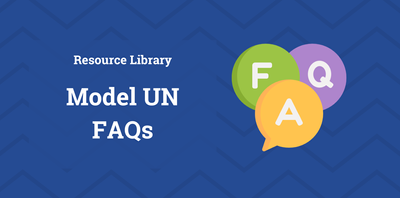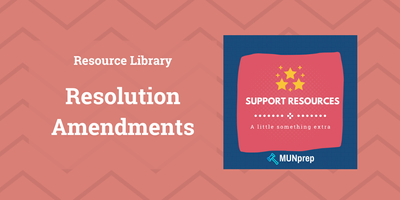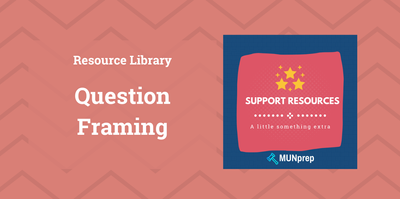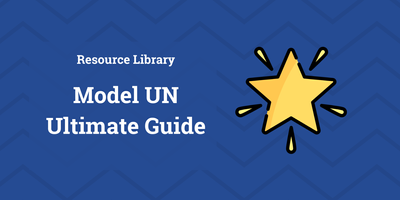MUN Vocabulary
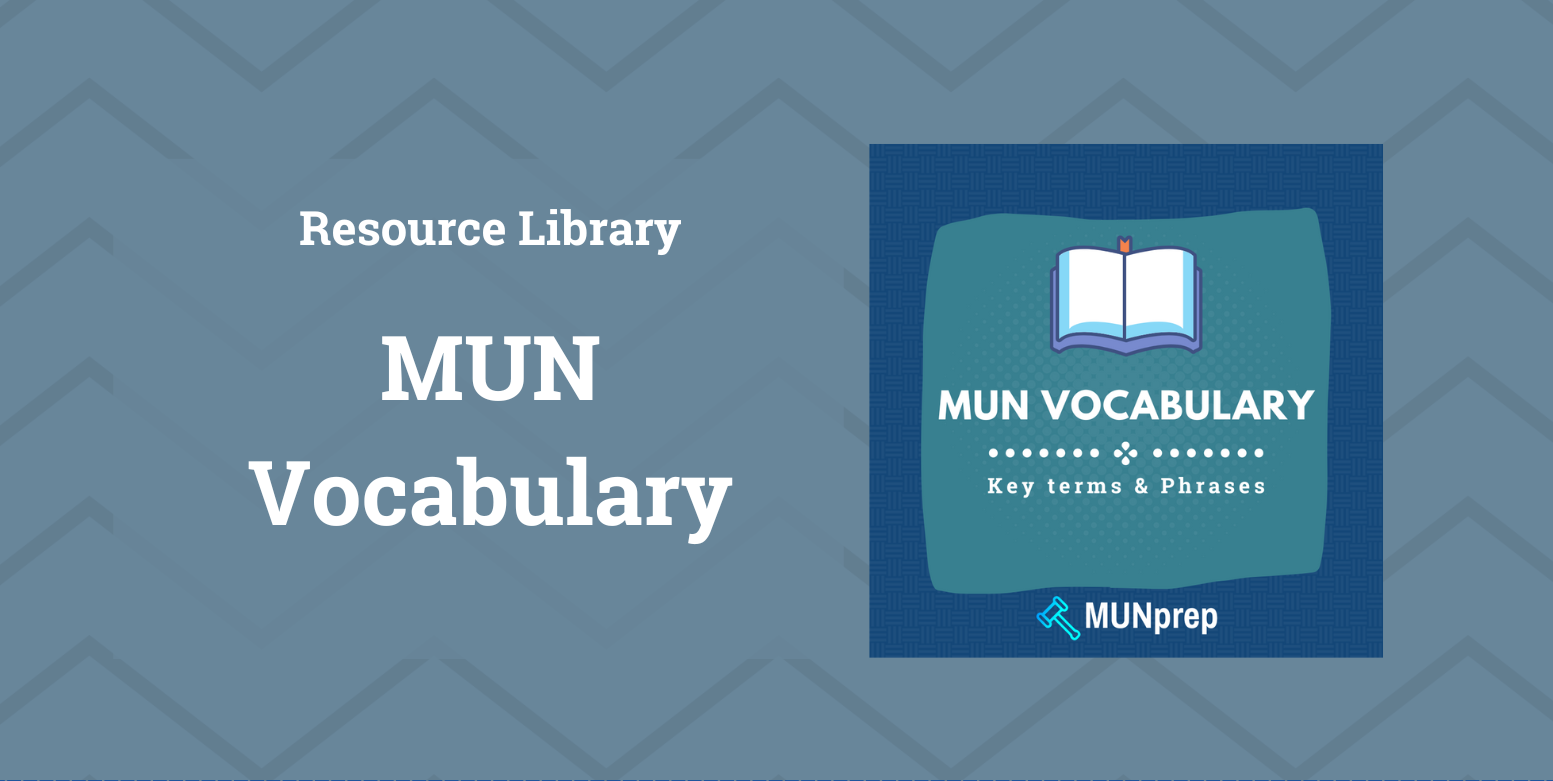
Today, we’re going to give you a list of key Model UN terms and their definitions so you can start using them like a Model UN pro!
Basic Terms
Background guide
Written by conference organizers, it is a summary of important information for your committee topic and is the starting point for any Model UN Delegate.
Bloc
A group of countries with either a similar geographic location or opinion on a certain topic.
Council
An advisory body that meets regularly and serves in an administrative capacity.
Committee
A body that is tasked with investigating, reporting and taking advantage on a particular issue.
Committee Session
A meeting by a Committee or Council that includes debate on the committee topic.
Debate
Formal discussion on a particular topic where various opinions are expressed.
Delegate
A student who is the representative for a particular state or person in a Model UN committee.
Head Delegate
The lead student for a Model UN team.
Delegation
A team of students who are attending a conference from the same school.
Gavel
A mallet that is used by a committee chair to bring order to a Committee or Council.
Placard
Signboard that shows who the delegate is representing, a delegate can raise it when they would like to speak.
Position Paper
An essay that presents your delegation’s assessment of a situation and how to fix it.
Conference Staff
Secretariat
The staff who organize a Model UN conference.
Secretary-General
The head of the Secretariat and of the entire conference.
Dais
The staff who administer a Model UN committee.
Chair
A member of the dais who moderates debate and enforces rules of procedure.
Procedural Terms
Abstain
Deciding to not vote on a particular matter. This is generally understood as not supporting a resolution enough to vote for it, but not being opposed enough to want to vote against it either.
Adjourn
Suspending the debate for a particular committee session, discussion can be resumed in the next scheduled session.
Agenda
The order in which issues will be discussed, delegates can suggest topics for the agenda through motions.
Caucus
An opportunity to discuss policy ideas.
Moderated Caucus
Discussion that is moderated by the committee chair on a particular sub-topic.
Unmoderated Caucus
Discussion where delegates can move around the committee room and have more informal discussions on their committee topic.
Decorum
Proper etiquette that is expected of delegates in a committee room, a committee Chair will set expectations for decorum.
Flow of Debate
The term used to break down the stages of a MUN conference. A committee session moves along a 4 step process (Opening Debate, Organizing Priorities, Debating the topic, Solving the problem).
Motion
Raised by delegates, used to discuss procedural matters and help to further the discussion of the committee topic. The appropriate Motions change depending on the stage in the Flow of Debate.
Point
Raised by delegates, used to discuss issues outside of substantive debate.
Quorum
The minimum number of delegates required for votes to pass in a Model UN committee.
Roll Call
Takes place at the start of a Committee session, the Chair counts the number of delegations in the Committee room to determine the Quorum.
Rules of Procedure
The rules that govern how a Model UN committee is run.
Speakers' list
A list that determines the order for Delegates to speak, when the Chair calls for new speakers, Delegates can raise their placard to be added.
Veto
The special ability held by the 5 Permanent members of the Security Council (China, France, Russia, UK, USA) that allows them to prevent any Draft Resolution from passing.
Yield
When a speaker gives up the rest of their speaking time. Delegates can yield their time to 1) The Chair (most common) 2) Other Delegates 3) Comments.
Resolutions
Resolution
A legal document that expresses the general opinion of the committee on a particular committee topic.
Working paper
The first form of a Resolution, normally drafted together by a certain bloc.
Draft Resolution
A Working Paper after it is submitted to the Dais.
Directive
A special type of Resolution used in Crisis Committees.
Amendment
A change to a Draft Resolution that does not require a vote if it is Friendly, if it is an Unfriendly amendment, then the committee will vote on it.
Operative Clause
Clauses that help you to outline your solutions in an organized and easily understandable manner.
Preambulatory Clause
Clauses that outline the general problems that your Resolution will solve.
Signatory
People who believe that resolution is significant enough to submit to the Dais for debate.
Sponsor
Someone who made a significant contribution to the Resolution writing process.
Voting Procedure
The period where delegates vote on the proposed Amendments and Draft Resolutions. There are special procedures in place and delegates may not leave the committee room at this time or communicate with each other.

